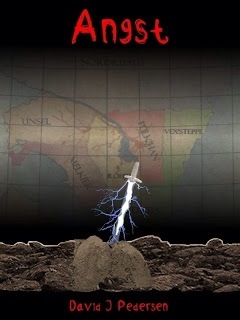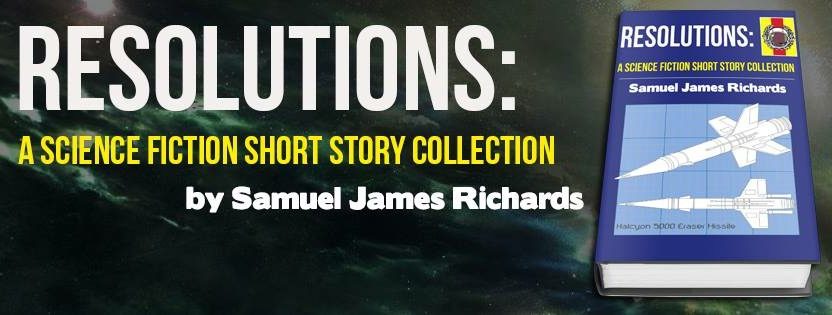 This interview was first published in February 2012, on my old blog.
This interview was first published in February 2012, on my old blog.
Tell us a little bit about yourself e.g. where you live, family, occupation, favourite type of breakfast cereal etc!
I was born in Racine, Wisconsin and raised in Kansas City, Missouri. I’ve worked in sales, management and IT – which means I’m not good at anything but I can make a mess in lots of different places. My lovely wife and editor, Angie Pedersen, is a published author of three books about Scrapbooking. I have a 14 year old daughter and an 18 year old son. Right now I’m trying the paleo diet, so all cereal sounds really good!
How long have you been writing and what first inspired you to pick up the pen?
I’ve been writing stories since I was in grade school, and got the bug to write a novel in High School – but was never patient enough to do it. I’m not sure what finally made me turn the corner, if it was too much time in corporate America, or that I was finally mature enough to wait for the microwave to count all the way down to zero. Either way I’m glad I finally did start because I can’t seem to stop and I’ve got a lot of story to tell.
I see you’ve written a novel called ‘Angst’ – let’s hear the sales pitch for it!
Angst is a story about midlife crisis in medieval times. After turning 40 Angst believes that any chance of his dreams coming true are gone. He is an overweight, paper-pushing, magic-wielder. Magic is mostly illegal and because of this he is stuck in a thankless job. His friends have drifted apart, his marriage is on the rocks, and the only person who seems to care is the teenage princess Victoria. They have become the best of friends, which upsets his wife, and makes things worse with his boss, the Queen. Angst believes that if he had just been allowed to become a knight everything would have turned out better.
The world around Angst is tumbling into chaos. Once extinct magical creatures have begun to appear, they are invulnerable and they are hungry. After pulling the proverbial “sword from the stone,” an ancient sword so large people thought it was a statue, Angst discovers he can use it to kill these monsters. To rid herself of Angst, the Queen offers him what he wants the most, a title, possibly even knighthood. All he has to do is find the source of magical creatures. Angst uses this mission as a means to force his friends to accompany him, in hopes that it will pull them close together again. Unfortunately they don’t know how much danger they will be facing. While his friends may be too old and out of shape to be fighting monsters, Angst is driven to succeed so he can become a knight.
One of the great things about this novel is that it isn’t that traditional fantasy story of ‘a young man or woman filled with potential and seeking the path of greatness’. Angst is a guy who never found that path in his youth and has spent his life wondering why he never got the chance. When the chance is finally thrust on him, he finds that the grass isn’t necessarily greener.
Do you consider your work to be in any way autobiographical – i.e. are you facing the same mid-life crisis that plagues your protagonist?
One of my best friends from High School said reading the book was like spending an evening talking to me. While I’m not Angst, and most of the characters aren’t exact duplicates of friends and family, there are certainly more than a few similarities. I have tried to follow Mark Twain’s great advice to “write what you know.” As for a mid-life crisis, I guess it depends on who you ask. I will say that if going on adventures while being surrounded by attractive young women means I’m going through a mid-life crisis – then I’m in!
Why did you choose to self-publish rather than follow the traditional route of publishing?
There are lots of reasons I never submitted anything to a traditional publisher. The most important one was retaining control of the story and characters. I have no doubt that a publisher could make my story more sellable, but I know what I want my story to say and really don’t want anything or anyone cut out. For instance, there are things that happen in book 2 that may not be referenced again until book 6 or book 100. I want the flexibility to leave those plot points and characters in place.
I also enjoy the immediate gratification I’ve gotten from self-publishing. Writing your first book isn’t about money. Instead, my goals have been to entertain, write characters that people care about, and create situations that readers can relate to. And I love to hear that I have made someone laugh. I’ve been told that I’ve met many of those goals, and I feel great about it.
How important is social media in the marketing/promotion of your work?
To this point it has been everything. Most of my marketing and promotion has been done through Twitter and my blog. I never thought I’d say this, but I love Twitter. It’s a great way to find an audience, and network with other writers. I’ve met some amazing people and have gotten some great feedback. The interaction is both fun, and really makes me want to write more.
What’s the most challenging aspect of being a writer?
I want my books to be easy to read, entertaining, and relatable while at the same time being clever enough that you don’t always know what is going to happen. Readers who reviewed Angst enjoyed some of the twists and turns of the story. I’m proud of my first book and am striving to make the sequel, Buried in Angst, as good, or better than the first.
Do have a strict writing regime or is your creative process fairly relaxed?
Not really – my schedule is crazy full so I fit writing time in when I can. I try to schedule writing after work 2-3 days a week and feel pretty good if I get one day in — I usually hide at a bookstore with my netbook and throw up a few pages while listening to various soundtracks. Then I’ll edit and rewrite the mess a couple of days later at home in the evenings before handing it off to my wife for editing.
What genres and authors do you enjoy reading?
It’s unfortunate that my reading time is my writing time (and my family time, and my exercise time, etc). I mostly enjoy fantasy and science fiction, but if I don’t have a lot of time to read I’ll pick up a comic book. I’ve really enjoyed DC Comics’ New 52 soft reboot lately.
What advice would you give to aspiring writers?
Write! More than anything you need to write. Write lots, write little, write poorly – it doesn’t matter. Every time you write it is like exercising a muscle; your writing will improve and so will the creative process.
David J Pedersen is the author of “Angst”, available on Kindle and Nook, and other reading devices. He regularly blogs at http://gotangst.blogspot.com/
 As it’s the festive season, and my birthday on Dec 14th, I thought I’d offer you all a special Christmas gift. My science fiction short story collection, Resolutions, is available for free from Smashwords until Dec 15th.
As it’s the festive season, and my birthday on Dec 14th, I thought I’d offer you all a special Christmas gift. My science fiction short story collection, Resolutions, is available for free from Smashwords until Dec 15th.



 The time has almost arrived for Resolutions, my science fiction short story collection, to hit digital bookshelves. I don’t want to be too specific at this point, as a spanner could easily enter the works, but I am hoping to have the collection available to purchase and download by the end of next week (Friday 26th Sept). I’ve never electronically published a book before, so there could be some unknown hurdles still in my pathway, but I’ll keep you posted if there is a delay.
The time has almost arrived for Resolutions, my science fiction short story collection, to hit digital bookshelves. I don’t want to be too specific at this point, as a spanner could easily enter the works, but I am hoping to have the collection available to purchase and download by the end of next week (Friday 26th Sept). I’ve never electronically published a book before, so there could be some unknown hurdles still in my pathway, but I’ll keep you posted if there is a delay.